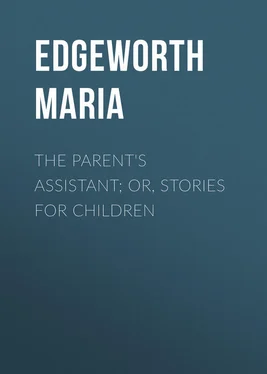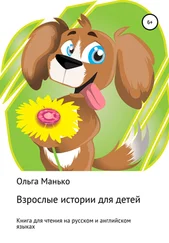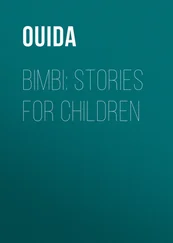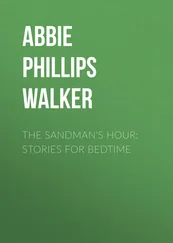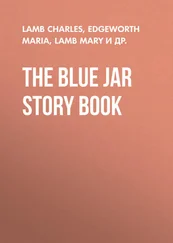Maria Edgeworth - The Parent's Assistant; Or, Stories for Children
Здесь есть возможность читать онлайн «Maria Edgeworth - The Parent's Assistant; Or, Stories for Children» — ознакомительный отрывок электронной книги совершенно бесплатно, а после прочтения отрывка купить полную версию. В некоторых случаях можно слушать аудио, скачать через торрент в формате fb2 и присутствует краткое содержание. Издательство: Иностранный паблик, Жанр: foreign_antique, foreign_prose, foreign_children, на английском языке. Описание произведения, (предисловие) а так же отзывы посетителей доступны на портале библиотеки ЛибКат.
- Название:The Parent's Assistant; Or, Stories for Children
- Автор:
- Издательство:Иностранный паблик
- Жанр:
- Год:неизвестен
- ISBN:нет данных
- Рейтинг книги:5 / 5. Голосов: 1
-
Избранное:Добавить в избранное
- Отзывы:
-
Ваша оценка:
- 100
- 1
- 2
- 3
- 4
- 5
The Parent's Assistant; Or, Stories for Children: краткое содержание, описание и аннотация
Предлагаем к чтению аннотацию, описание, краткое содержание или предисловие (зависит от того, что написал сам автор книги «The Parent's Assistant; Or, Stories for Children»). Если вы не нашли необходимую информацию о книге — напишите в комментариях, мы постараемся отыскать её.
The Parent's Assistant; Or, Stories for Children — читать онлайн ознакомительный отрывок
Ниже представлен текст книги, разбитый по страницам. Система сохранения места последней прочитанной страницы, позволяет с удобством читать онлайн бесплатно книгу «The Parent's Assistant; Or, Stories for Children», без необходимости каждый раз заново искать на чём Вы остановились. Поставьте закладку, и сможете в любой момент перейти на страницу, на которой закончили чтение.
Интервал:
Закладка:
The half-guinea which Mr. Hopkins, the agent, required for letting Mary into the castle was part of what she had to pay to the schoolmistress, to whom above a guinea was due. Mary went to her, and took her goat along with her, and offered it in part of payment of the debt, but the schoolmistress would not receive the goat. She said that she could afford to wait for her money till Mary was able to pay it; that she knew her to be an honest, industrious little girl, and she would trust her with more than a guinea. Mary thanked her; and she was glad to take the goat home again, as she was very fond of it.
Being now settled in their house, they went every day regularly to work; Mary spun nine cuts a day, besides doing all that was to be done in the house; Edmund got fourpence a day by his work; and Peggie and Annie earned twopence apiece at the paper-mills near Navan, where they were employed to sort rags and to cut them into small pieces.
When they had done work one day, Annie went to the master of the paper-mill and asked him if she might have two sheets of large white paper which were lying on the press. She offered a penny for the paper; but the master would not take anything from her, but gave her the paper when he found that she wanted it to make a garland for her mother's grave. Annie and Peggy cut out the garland, and Mary, when it was finished, went along with them and Edmund to put it up. It was just a month after their mother's death.
It happened, at the time the orphans were putting up this garland, that two young ladies, who were returning home after their evening walk, stopped at the gate of the churchyard to look at the red light which the setting sun cast upon the window of the church. As the ladies were standing at the gate, they heard a voice near them crying, 'O mother! mother! are you gone for ever?' They could not see any one; so they walked softly round to the other side of the church, and there they saw Mary kneeling beside a grave, on which her brother and sisters were hanging their white garlands.
The children all stood still when they saw the two ladies passing near them; but Mary did not know anybody was passing, for her face was hid in her hands.
Isabella and Caroline (so these ladies were called) would not disturb the poor children; but they stopped in the village to inquire about them. It was at the house of the schoolmistress that they stopped, and she gave them a good account of these orphans. She particularly commended Mary's honesty, in having immediately paid all her mother's debts to the utmost farthing, as far as her money would go. She told the ladies how Mary had been turned out of her house, and how she had offered her goat, of which she was very fond, to discharge a debt due for her schooling; and, in short, the schoolmistress, who had known Mary for several years, spoke so well of her that these ladies resolved that they would go to the old castle of Rossmore to see her the next day.
When they went there, they found the room in which the children lived as clean and neat as such a ruined place could be made. Edmund was out working with a farmer, Mary was spinning, and her little sisters were measuring out some bogberries, of which they had gathered a basketful, for sale. Isabella, after telling Mary what an excellent character she had heard of her, inquired what it was she most wanted; and Mary said that she had just worked up all her flax, and she was most in want of more flax for her wheel.
Isabella promised that she would send her a fresh supply of flax, and Caroline bought the bogberries from the little girls, and gave them money enough to buy a pound of coarse cotton for knitting, as Mary said that she could teach them how to knit.
The supply of flax, which Isabella sent the next day, was of great service to Mary, as it kept her in employment for above a month; and when she sold the yarn which she had spun with it, she had money enough to buy some warm flannel for winter wear. Besides spinning well, she had learned at school to do plain work tolerably neatly, and Isabella and Caroline employed her to work for them; by which she earned a great deal more than she could by spinning. At her leisure hours she taught her sisters to read and write; and Edmund, with part of the money which he earned by his work out of doors, paid a schoolmaster for teaching him a little arithmetic. When the winter nights came on, he used to light his rush candles for Mary to work by. He had gathered and stripped a good provision of rushes in the month of August, and a neighbour gave him grease to dip them in.
One evening, just as he had lighted his candle, a footman came in, who was sent by Isabella with some plain work to Mary. This servant was an Englishman, and he was but newly come over to Ireland. The rush candles caught his attention; for he had never seen any of them before, as he came from a part of England where they were not used. Edmund, who was ready to oblige, and proud that his candles were noticed, showed the Englishman how they were made, and gave him a bundle of rushes. 2 2 'The proper species of rush,' says White, in his Natural History of Selborne , 'seems to be the Juncus effusus , or common soft rush, which is to be found in moist pastures, by the sides of streams, and under hedges. These rushes are in best condition in the height of summer, but may be gathered so as to serve the purpose well quite on to autumn. The largest and longest are the best. Decayed labourers, women, and children make it their business to procure and prepare them. As soon as they are cut, they must be flung into water, and kept there; for otherwise they will dry and shrink, and the peel will not run. When these junci are thus far prepared, they must lie out on the grass to be bleached, and take the dew for some nights, and afterwards be dried in the sun. Some address is required in dipping these rushes in the scalding fat or grease; but this knack is also to be attained by practice. A pound of common grease may be procured for fourpence, and about six pounds of grease will dip a pound of rushes, and one pound of rushes may be bought for one shilling; so that a pound of rushes, medicated and ready for use, will cost three shillings.'
The servant was pleased with his good nature in this trifling instance, and remembered it long after it was forgotten by Edmund. Whenever his master wanted to send a messenger anywhere, Gilbert (for that was the servant's name) always employed his little friend Edmund, whom, upon further acquaintance, he liked better and better. He found that Edmund was both quick and exact in executing commissions.
One day, after he had waited a great while at a gentleman's house for an answer to a letter, he was so impatient to get home that he ran off without it. When he was questioned by Gilbert why he did not bring an answer, he did not attempt to make any excuse; he did not say, ' There was no answer, please your honour ' or, ' They bid me not wait ' etc.; but he told exactly the truth; and though Gilbert scolded him for being so impatient as not to wait, yet his telling the truth was more to the boy's advantage than any excuse he could have made. After this he was always believed when he said, ' There was no answer ' or, ' They bid me not wait '; for Gilbert knew that he would not tell a lie to save himself from being scolded.
The orphans continued to assist one another in their work according to their strength and abilities; and they went on in this manner for three years. With what Mary got by her spinning and plain work, and Edmund by leading of carthorses, going on errands, etc., and with little Peggy and Anne's earnings, the family contrived to live comfortably. Isabella and Caroline often visited them, and sometimes gave them clothes, and sometimes flax or cotton for their spinning and knitting; and these children did not expect that, because the ladies did something for them, they should do everything. They did not grow idle or wasteful.
Читать дальшеИнтервал:
Закладка:
Похожие книги на «The Parent's Assistant; Or, Stories for Children»
Представляем Вашему вниманию похожие книги на «The Parent's Assistant; Or, Stories for Children» списком для выбора. Мы отобрали схожую по названию и смыслу литературу в надежде предоставить читателям больше вариантов отыскать новые, интересные, ещё непрочитанные произведения.
Обсуждение, отзывы о книге «The Parent's Assistant; Or, Stories for Children» и просто собственные мнения читателей. Оставьте ваши комментарии, напишите, что Вы думаете о произведении, его смысле или главных героях. Укажите что конкретно понравилось, а что нет, и почему Вы так считаете.
